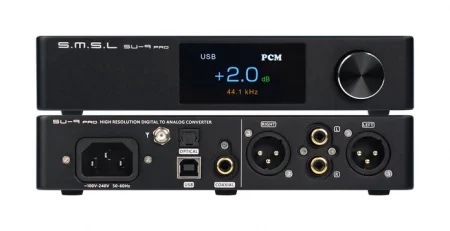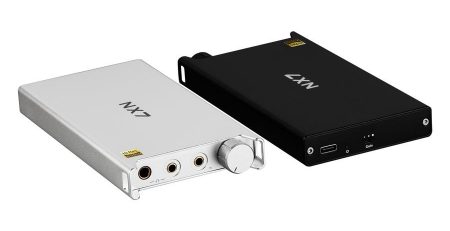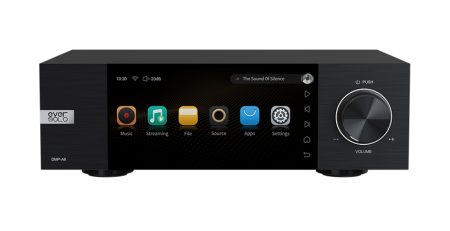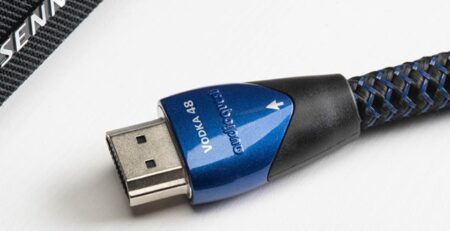xDuoo Link2 BAL Review
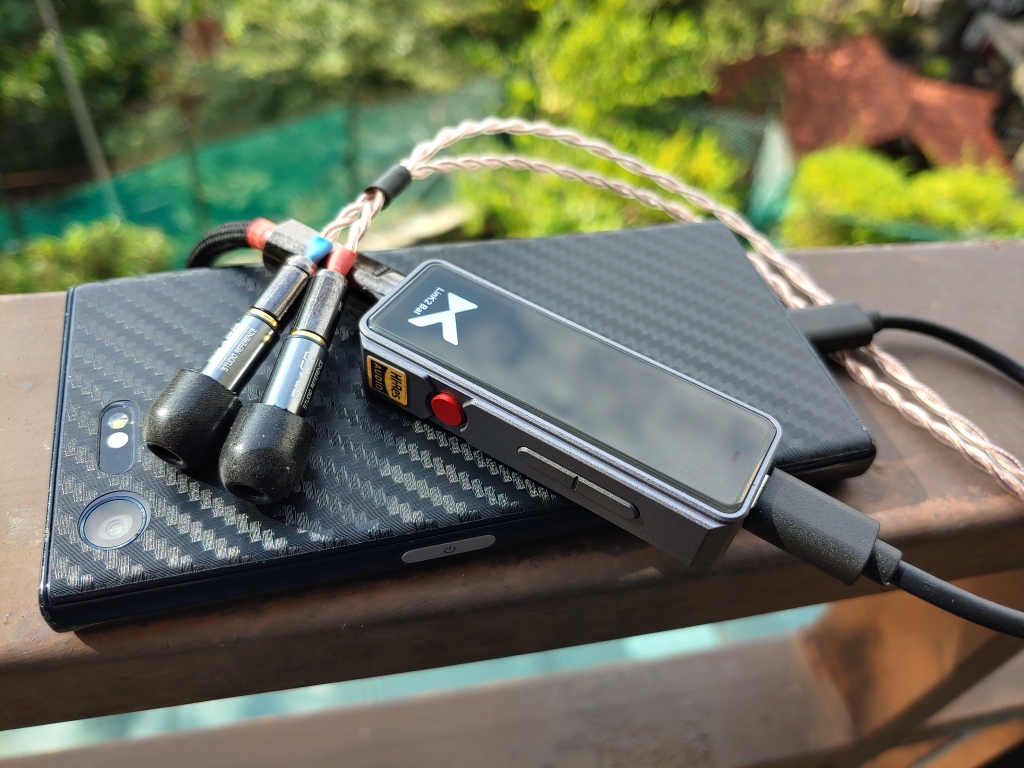
SPECIFICATIONS
DAC Chip: Cirrus Logic CS43131 (Dual)
Input port: Type-C USB
Output port: 3.5mm+4.4mm
Output Power: 4 Vrms (3.5mm: 125mW@32ohm, 4.4mm: 270mW@32ohm)
Sample Rate Support: PCM: 16-32Bit /44.1-384kHz
DSD: DSD64-256
Frequency response: 20Hz~20kHz(±0.5dB)
THD+N: 0.001%1kHz (3.5 Headphone AMP), 0.0007%1kHz (4.4 Headphone AMP)
SNR: 123dB(3.5 Headphone AMP), 123dB(4.4 Headphone AMP)
Crosstalk: 3.5 Output: ≥77dB, 4.4 Output: ≥120dB
Weight: 28g
Size: 63mm23.5mm13mm
Test Equipment
Headphones:
- FOSTEX T40RP MK3 (Magnetic Planar, 50 Ohm, 91db Sensitivity)
- Beyerdynamic DT880 (Dynamic Drivers, 600 Ohm, 96db Sensitivity)
IEMs:
- Etymotic ER4SR (Single BA, 45 Ohm, 96db Sensitivity)
- TRN VX Pro (8 BA + 1DD Hybrid, 22 Ohm, 106db Sensitivity)
- TIN HiFi T3+ (Single DD, 32 Ohm, 105db Sensitivity)
- Shure KSE1500 (Single Electrostatic 200V, KSA1200 Energizer)
- Kinera Idun Golden (3BA + 1DD Hybrid, 32 Ohm, 112db Sensitivity)
Earbuds:
- VE Asura 3.0 FE (Single DD, 155 Ohm)
- VE ZEN 2.0 SLQ (Single DD, 320 Ohm)
Sources:
- Windows 10, Foobar 2000 (USB 3.0 Power)
- LG V50 ThinQ (UAPP USB Exclusive Mode, Bitperfect)
- Sony Xperia X Compact (UAPP USB Exclusive Mode, Bitperfect)
- HiBy Music Player App (USB Exclusive Mode)
Comparative Reference DAC/Amp:
- iFi ZEN DAC V2 + ZEN CAN Stack (15.1 Vrms)
LISTENING EQUIPMENT USED IMPARTED HUGE INFLUENCE TO SOUND IMPRESSIONS & RATING
xDuoo Link2 BAL, a fresh re-entry by xDuoo into the ever growing Dongle DAC/Amp scene. About the only thing that this Link2 BAL shares with the predecessor, just the name. Internally and externally it is practically a different beast with different DAC chips altogether. Nonetheless, this is one of the many that I have been waiting for. Dual Cirrus Logic with xDuoo tuning – and I like their tuning philosophies, which focuses on the balance between musicality and technicalities.
Build, Functions, Usability

xDuoo Link2 BAL, built like a tank. Aluminum chassis sandwiched with glass faceplates. Holding it in my hands, I truly admire the industrial look and feel. The heft inspires confidence, the ruggedness indicate this thing is built to last. It is a gadget worth owning even just by the looks. However if I must nitpick, then I would have prefer the stock USB-C cable to be a bit more thicker than it is, the heft of Link2 BAL just seemed out of proportion to the thinly twisted cable. No biggie for me as I opted to use my own USB-C cable which are much thicker and robust. On the other hand, I must applaud xDuoo for providing iOS Lightning cable too, a rarity nowadays. Which means Link2 BAL is natively capable working with iPhones. That’s a huge bonus.
The most prominent feature of Link2 BAL, on one side there’s two tactile volume adjusters placed conveniently with a huge red colored play and pause button. With regular usage daily, I have developed a fondness for these three buttons especially when used with UAPP. However the volume adjustments are not independent, which means they operate directly to alter digital volume levels on the source – this can be a hassle when used with HiBy Music Player USB Exclusive Mode since HiBy does not provision for volume adjustments while off screen. Otherwise, when used with UAPP it worked perfectly and the increment of volume steps can be refined based on UAPP settings.
On the other side, there’s two toggle switches which will allow for switching between UAC Modes. UAC 1 or UAC 2 – I find this very useful especially for wide range of compatibility element. It is quite apparent that xDuoo considered Link2 BAL ability to adapt to any host as paramount. It means Link2 can also be used on many gaming consoles which may only operate in UAC 1. I personally prefer UAC 1 for the simplicity and primarily use my own Link2 BAL on that mode as it works better with HiBy Music Player.
The other toggle switch, it is for switching between Normal or Turbo modes. Normal being normal gain and Turbo being High Gain. It is quite simple really, I will always use the Normal mode when driving highly sensitive IEMs and the Turbo modes for anything above 45 Ohm. Loudness levels difference being audible between modes.
Last but not least, there’s two ports for Audio output which is fast becoming the normal standard for compact DAC/Amps nowadays. 3.5mm Single Ended and 4.4mm BAL. The circuitry on the BAL side I believe very much similar to the implementation of TempoTec Sonata E44, another CS43131 which I liked a lot. Even better, when tested with my own Multimeter, Link2 BAL employ the use of 5th pole Common Ground similar to E44 as well. It suggests that Link2 BAL is running some sort of discrete circuit, each channel Left and Right having their own grounds, the common GND being reserved to the 5th pole of Pentaconn 4.4mm socket for hybrid usage.
Endurance wise, Link2 BAL scored a respectable 6 hours of continuous play on Sony Xperia X Compact (Android 8, 2700 mAH Battery, UAPP, driving TRN VX Pro on 4.4mm BAL, Low Gain). That is practically on par to Cayin RU6 and Lotoo PAW S2.
And here’s the most interesting bit. Link2 BAL has superb heat dissipation and management!. Despite used for long hours, I can barely feel any heat emitted. It remained cool to the touch. This is something I find very rare among tons of Dongles I have tried so far. In comparison, CEntrance DACport HD and Apogee Groove operates hot enough to fry some eggs, hahahaha.
Sound Impressions
From the first listen, with my Etymotic ER4SR, I was immediately greeted with a sound that I regard as rich, wholesome, neutral, natural and organically realistic. Link2 BAL markedly has that near analogue timbre and tonality that I adore so very much. It is quite evident to my ears, how polished and mature dynamics presentation are – dynamic transients being fluid and effortless, a sign of proper power to drive the paired partners. On the subject of tonality, I must admit that Link2 BAL tuning is more preferable (subjective to my personal taste) to the more euphonic TempoTec Sonata E44. Both being dual CS43131. I would describe it this way, E44 has a bit more of aggression and vibrancy, less organic, more modern sound sort of tuning, Link2 BAL on the other hand, slightly more refined, smoother on attack and transients, appearing less aggressive – but it also mean Link2 BAL ended up being smoother in comparison to the crisper/energetic E44.
To complement the great tonal and timbre balance, Link2 BAL exhibited Desktop grade dynamic range presentation. No, I am not making this up out of thin air. Extensively comparing the output from my iFi ZEN Stack and Link2 BAL, I would say Link2 BAL performs 98% to that desktop stack. No joke. The depth of extensions on both end of the spectrum are practically similar. Bass being deep, Highs being realistically extended, and Mids being rich in density. Perhaps, I would admit that ultimately the ZEN Stack has an upper hand on Mids overall texture, depth and intimacy, not a surprise considering that the ZEN Stack operates up to 15.1 Vrms as opposed to Link2 BAL 4 Vrms. But for a small dongle to even traverse the territory of Desktop DAC/Amp is simply mind blowing – these sort of thing is not even achievable before this (with an exception to CEntrance DACport HD and Apogee Groove that performs on similar level, even earlier).
Going back to Link2 BAL dynamics handling. I will say that this is one hell of capable DAC/Amp. The balance of sound is nothing short of amazing. Treble, Bass and Mids all well articulated to not overshadow each other. This is one Dongle that is faithfully neutral with no hint of coloration on any frequencies. At least this is what I conclude from the pairing with the highly resolving and flat diffused field Etymotic ER4SR, or the naturally neutral Shure KSE1500 – both being my reference IEMs for determining the characteristics of the sources.
Treble is crisp, polished and smooth, exhibiting proper decays. Good amount of sparkle and shimmer, never overcooked to make it unnaturally bright, yet there’s substantial amount of Treble details to satisfy even the most discerning Treble junkies.
Bass being well balanced with great speed, never sluggish or unnaturally boosted. It all depends on the nature of the paired partners. With my Fostex T40RP MK3 and Shure KSE1500, I am hearing very satisfying Bass responses. Mid-Bass super solid and commanding, Sub-Bass audibly present with strong sensations and smooth decays. Lots of texture while at it.
Mids appeared very neutral but rich. There’s great density and texture to the presentation. This is a consistent trait I am hearing on most of my listening gears. However if I must nitpick, then I would say that I observed Link2 BAL does not seem to work that great with open backed earbuds. Both of my VE ZEN 2.0 SLQ and Asura 3.0FE sounded slightly off key, with Mids appearing somewhat hollow despite a rounded exterior. But this is an isolated case as Link2 BAL works perfectly with the rest of my gears. The general theme of Link2 BAL Mids being neutral and natural, and I love it just the way it is.
Technically, without a doubt Link2 BAL is now the new king of Soundstage alongside DACport HD. This was something that has been held by THX Onyx for quite a while. The expanse, width, depth and spaciousness of Link2 BAL soundscape is quite evident even when paired with the natively narrow sounding ER4SR. Even more obvious with TIN HiFi T3+, TRN VX Pro and Kinera Idun Golden. Link2 BAL also exhibited great prowess in spatial imaging and resolution, it is right there alongside the top dogs of #donglemadness. The staging of instruments, notes and passages are super clean and crisp – yet smooth enough to instill good sense of maturity. Details are resolved properly depending on how resolving the pairing partners are – and it should be that way, transparent as it is realistic. Despite all that, I am pleased to find out that Link2 BAL is a bit more forgiving on poor sources or Lo-Fi, unlike Ovidius B1 which can be quite finicky on those stuffs. Last but not least, Link2 BAL is assuredly excellent with speed, hugely evident when subjected to playback of complex or outright fast paced tracks – there’s no chance for things to get muddy or compressed sounding.
Driving Power

xDuoo Link2 BAL Vs iFi ZEN Stack Vs DACport HD
Tested on Windows 10, USB 3.0, Foobar 2000, Song: Diana Krall “The Look of Love” FLAC Lossless.
iFi ZEN Stack 4.4mm BAL (Gain 3/4)
Vol/Loudness: 10/100 (Etymotic ER4SR)
Vol/Loudness: 30/100 (Fostex T40RP MK3)
Vol/Loudness: 40/100 (Beyerdynamic DT880 600 Ohm)
Soundstage: Surprisingly not as wide as DACport HD or Link2 BAL
Headroom: Very spacious despite with less than wide Soundstage
Sound Observation:
Very forward and intimate Mids, rich dynamics density with very crisp note weight. Solid attack and decays. Close to analogue sound, very organic
CEntrance DACport HD 3.5mm SE (High Gain)
Vol/Loudness: 18/100 (Etymotic ER4SR)
Vol/Loudness: 40/100 (Fostex T40RP MK3)
Vol/Loudness: 58/100 (Beyerdynamic DT880 600 Ohm)
Soundstage: Wider than ZEN Stack by a step
Headroom: Equally spacious to ZEN Stack
Sound Observation:
Neutral placement for Mids, slightly less aggression and attack Vs ZEN Stack, smoother but crisp. More air compared to either ZEN Stack or Link2 BAL. The most analogue and organic sounding unit between the three of them.
xDuoo Link2 BAL 4.4mm BAL (High Gain)
Vol/Loudness: 12/100 (Etymotic ER4SR)
Vol/Loudness: 32/100 (Fostex T40RP MK3)
Vol/Loudness: 50/100 (Beyerdynamic DT880 600 Ohm)
Soundstage: Equally wide to DACport HD
Headroom: Equally spacious to DACport HD & ZEN Stack
Sound Observation:
Neutral placement for Mids, solid dynamics density almost comparable to ZEN Stack, crisper but slightly less smoothness Vs DACport HD. Close to analogue sound, equally organic to DACport HD & ZEN Stack
The fact is, aside from volume loudness, I find all three being very similar sounding sonic wise. The difference described only evident with critical A/B listening, and they are miniscule really. If I am to do a blind test, I would probably fail to identify which one is which, especially between ZEN Stack and Link2 BAL. However no mistaking that airy characteristics of DACport HD which makes it unique (the same sort of airiness found only on Ovidius B1). Another big surprise, both DACport HD and Link2 BAL actually performed marginally better than ZEN Stack on resolving Micro Details.
Link2 BAL 3.5mm SE vs 4.4mm BAL (Both High Gain)
(HiBy Music Player USB Exclusive Mode)
SE Vol/Loudness: 16/32
BAL Vol/Loudness: 13/32
Sound Observation:
Tested with Etymotic ER4SR, while the sonic characteristics remained similar, I can hear the BAL port being more spacious and wider sounding. Dynamics density and note weight appeared stronger too. So it is quite apparent that the 3.5mm SE is optimized for highly sensitive stuffs, something at around 32 Ohm and below, with over 100db of sensitivity.
VERDICT
xDuoo Link2 BAL. To sum it up. I am impressed with this one hell of a Dongle. Minor cons aside, I found myself using it regularly. Articulate balance between musical and technical element being one of Link2 BAL greatest strengths. Not forgetting how powerful the 4 Vrms output is. Practically among the best with overall loudness and drive. While at it, Link2 BAL being consistent at synergizing with many partners, be it super sensitive stuffs or outright stubborn juggernauts, imparting great sonic indulgence that will not fail to make me smile. There’s a lot of things to like about this Link2 BAL, most important to me, how well executed the tuning, offering great near analogue sound that is neutrally, naturally realistic and believable. I must commend xDuoo for putting the right focus on this tuning approach, they opted not to get carried away with overcooking anything – there’s moderation and articulation in the implementation of Link2 BAL – and for that reason, it is one of my firm favorites now.
 Highlights
Highlights
- Great near analogue tonal and timbral sound, highly organic
- Faithfully neutral and uncolored
- Clean and crisp dynamics
- Reference grade technicalities
- Amazing 4 Vrms power
- Great heat management
- Great compatibility to many devices
- Good battery endurance
 Lowlights
Lowlights
- Volume adjustment is still digitally dependent to the host
- Stock USB Cables a bit thin for my preference
- Does not seem to work too well with high impedance earbuds
- Fingerprint magnet! (on the glass faceplate)
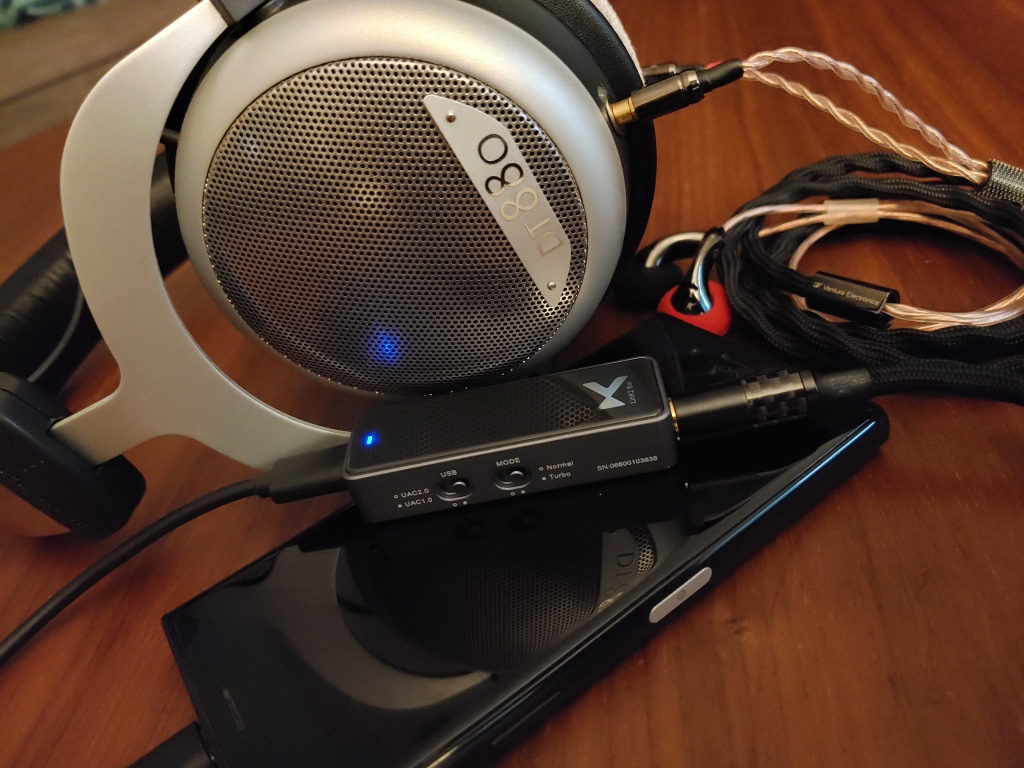
Best Pairing: Flexible up to 600 Ohm
Back to #donglemadness


